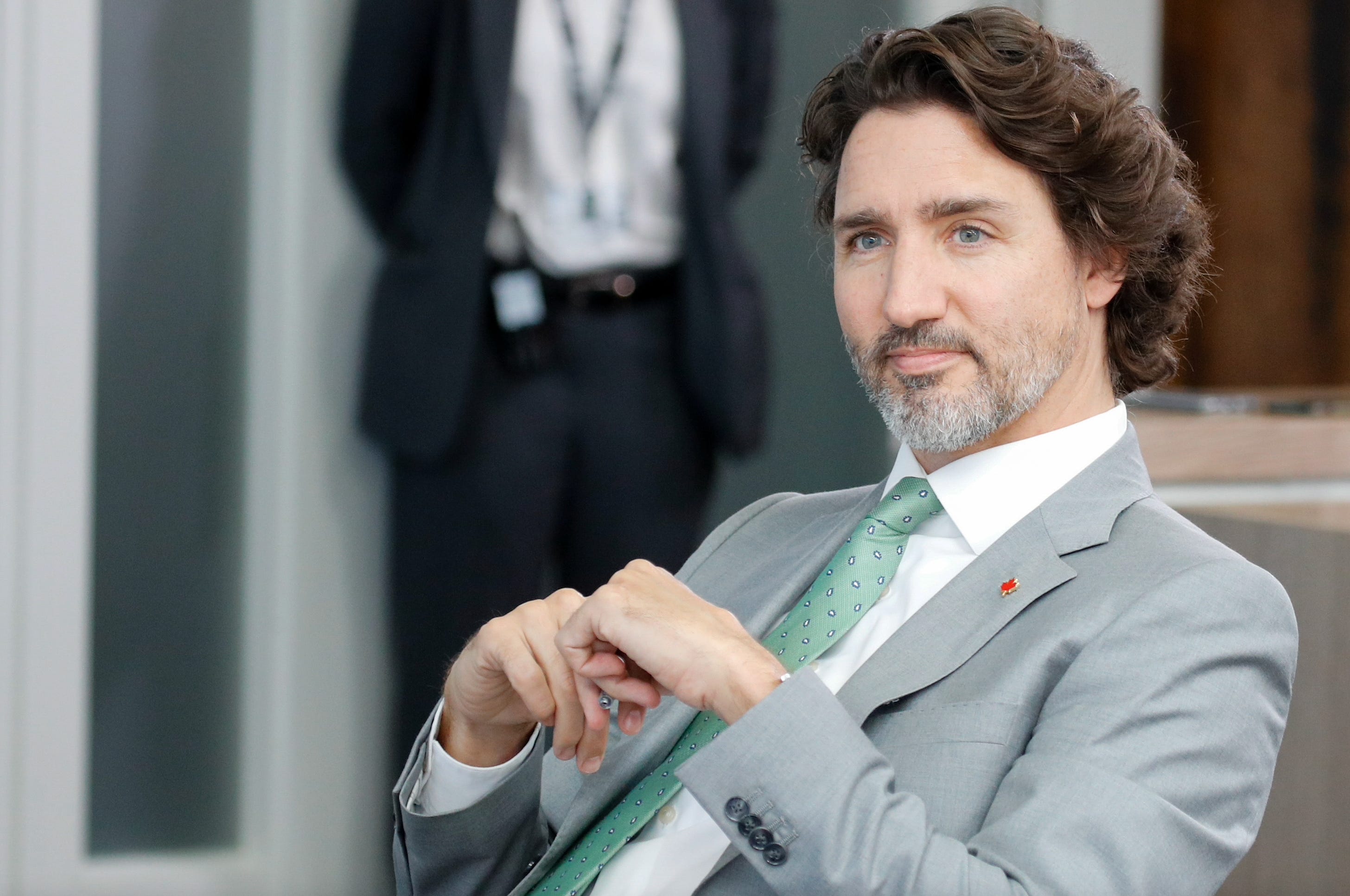Matt Taibbi, The West's Betrayal of Freedom (Feb. 19, 2023)
The West's Betrayal of Freedom
Westerners once endlessly propagandized "freedom" as the ultimate democratic virtue. Now, in fear of revolt, the leaders of these countries are mounting an opposite campaign
“Freedom cannot exist without order.” — Canadian Justice Paul Rouleau
The Honorable Justice Paul Rouleau’s “Report of the Public Inquiry into the 2022 Public Order Emergency,” an analysis of Justin Trudeau’s decision to institute Canada’s Emergencies Act and seize funds during last year’s trucker protests, blasted across Canadian media this weekend, reduced to a handful of headlines. As has become the norm in Western media, language was nearly identical:
Trudeau’s ‘Freedom Convoy’ shutdown was justified, inquiry rules - Politico
Canada’s use of emergency powers during ‘Freedom Convoy’ met threshold, commissioner says - Reuters
Federal government met the threshold to invoke Emergencies Act: Rouleau - CBC
Rouleau’s report is clearly written by a man with mixed feelings. On one hand, he agreed “the Government did not have a realistic prospect of productively engaging” with those who “believed COVID-19 vaccines were part of a vast global conspiracy to depopulate the planet.” At the same time, Rouleau refused to confine “misinformation and disinformation” to protesters:
Protest organizers’ mistrust of government officials was reinforced by unfair generalizations from some public officials that suggested all protesters were extremists… Where there was misinformation and disinformation about the protests, it was prone to amplification in news media… The fact that protesters could be at once both the victims and perpetrators of misinformation simply shows how pernicious misinformation is in modern society.
In the report you also find significant criticism of Canda’s Covid-19 policies and heavy-handed emergency measures like allowing Canada’s Border Services Agency (CBSA) to keep foreigners out. Rouleau even said he came to his main conclusion, that Trudeau’s invocation of the Emergencies Order was legal, “with reluctance.”
But such musings have no propaganda benefit, and Rouleau’s report was reduced to a single thought, that Trudeau’s Emergencies Order “Met the Threshhold.” This was almost exactly like the American press reaction to the 2019 report by Department of Justice Inspector General Michael Horowitz, which tore into FBI malfeasance for hundreds of pages but gave the press the headline it wanted: “Justice Watchdog Finds Russia Probe Was Justified, Not Biased Against Trump.”
Toronto Star columnist Susan Delacourt expounded on the theme, in a piece called, “‘Freedom’ has been a weaponized word. The Emergencies Act report finally tells us what it means.”
The article, which rails against the “warped idea of freedom… populism, and misinformation being sprayed all over social media,” reads like all the tsk-tsking editorials in the West you’ve read since Trump, which used every crisis to hype the idea that freedom = danger. It wasn’t long ago that a person couldn’t go outside without having the word “freedom” jammed in his or her ear, whether it was Mel Gibson yelling it over his hair extensions in Braveheart or Republican congressman Bob Ney engaging in a Pattonesque invasion of the House cafeteria so he could rename your potato-based side dish “Freedom Fries.”

This was back when freedom was one of the four words President George W. Bush knew, and every newly funded think tank or research center felt compelled to stick the word somewhere in the title: “The Freedom Center for Freedom Studies.” We loved the hell out of rights and freedoms when America had a superpower adversary infamous for depriving them, and nearly as much when we could highlight Islamic fundamentalism’s hatred of the “decadent” freedom-loving West during the War on Terror. “They hate us for our freedoms” sounded a lot better than “They hate us because we support Israel and steal oil.”
Most of all, freedom was a joyous propaganda theme back when upper-class America still had an interest in getting the struggling small-town voter to identify with massive corporations eager to throw off the yoke of the EPA and the SEC. Ronald Reagan was the first politician to master selling the same economic “liberty” to poor workers and the giant manufacturers who’d soon abandon them. Freedom wasn’t a dangerous concept, in other words, so long as the very wealthy still felt a deficit of it.
By 2016, however, the WEF types who’d grown used to skiing at Davos unmolested and cheering on from Manhattan penthouses those thrilling electoral face-offs between one Yale Bonesman and another suddenly had to deal with — political unrest? Occupy Wall Street was one thing. That could have been over with one blast of the hose. But Trump? Brexit? Catalan independence? These were the types of problems you read about in places like Albania or Myanmar. It couldn’t be countenanced in London or New York, not for a moment. Nobody wanted elections with real stakes, yet suddenly the vote was not only consquential again, but “often existentially so,” as American Enterprise Institute fellow Dalibor Rohac sighed.
So a new P.R. campaign was born, selling a generation of upper-class kids on the idea of freedom as a stalking-horse for race hatred, ignorance, piles, and every other bad thing a person of means can imagine:
After 2016, virtually every editorial in papers like the New York Times and the Washington Post suddenly argued every citizen is a monkey, every entry in the Bill of Rights a hand grenade. Quietly, as if pulled by cats, the idea that rights are “not absolute” was then introduced across the West. Britain’s Rishi Sunak was among the most recent to go there, explaining the right to protest is “not absolute” in introducing a tougher police law. There was even an under-noticed detail in the first Twitter Files involving an insta-poll a company called NetChoice conducted of congress members for Twitter in the wake of the Hunter Biden laptop story, showing Democrats shrugging at the blocking of the story, because “the First Amendment isn’t absolute.”
It’s no accident that the Enlightenment thinkers who brought us freedoms of speech, press, assembly and religion have recently undergone makeovers in elite undertakings like the 1619 Project, which tell us with straight faces that the Charters of Freedom were basically a ruse to keep King George from freeing the slaves. Freedom in these tales is cast not just as a theft-sanctifying invention of self-interested white guys, but a form of intellectual libertinism that’s only safe in the modern world when doled out by “responsible” people, college-trained in the art of harm avoidiance.
Editorially, the new rage is telling us the First Amendment is more of a Swiss cheese than you might have thought, if you were raised on misinformation like Schoolhouse Rock. “The First Amendment doesn’t guarantee you the rights you think it does,” read a solemn CNN piece from a few years back. A more recent AP editorial, anxious to disabuse people of the notion that they can and should be able to say whatever they want, purports to tell readers “What the First Amendment Really Says.”
Meanwhile new think-tanks and research institutions no longer tend to have “Freedom” in their names. New “disinformation” labs sound like “Alliance for Securing Democracy” or “Defending Digital Democracy” or the “Center for Countering Digital Hate.” (It’s humorously transparent that the people who fund such places see themselves and democracy as being the same things). These titles reflect the advocacy imperative: defending the status quo by defining critics as Hitlers, Haters, and Terrorists. Unlike thoughtful Justice Rouleau, the staffers at these groups don’t recognize “disinformation” as something that can also be produced by neoliberal governments or intelligence agencies. “Covid came from a lab” can be conspiracy theory, but the pee tape can’t be.
I’ve lived in places where freedoms are absent, met people who would crawl over glass to be able to work a hot-dog stand in peace, and find myself endlessly astonished by Americans (or Canadians, or Brits for that matter) who are anxious to sign up as accomplices in a general rights recall.
I know why they do it. The educated ones see themselves as the admins in a future society of conditional liberties, so they don’t have a problem building machines that define people unlike themselves as wreckers and “disinformationists.” I’m old enough to remember what Soviets called people like this: stukachi, i.e. “knockers,” or snitches. In the Soviet context these patriotic intellectuals listened in on the Intourist bus to your vacation conversations with family (for nighttime reports to the KGB), or chatted up the old ladies on the lavochka bench outside your apartment building to find out who was sleeping with whom (for the same bosses).
In the digital age, instead of snooping in subways or rifling through underwear drawers, the Western snitches read social media posts, and sift them into piles: safe, unsafe, blacklist-worthy. The recent Washington Examiner storyabout the state-funded think tank GDI that rated news organizations by “risk” with the aim of reducing ad revenue for NPR’s competitors is just the beginning. We’re finding documents in the Twitter Files that show U.S. government agencies sorting people into categories like “Russia-aligned” or “threat actors” for activities as diverse as membership in the gilets jaunes, or retweeting ZeroHedge, TeleSur or the Daily Wire. There’s a huge galaxy of quasi-private agencies doing this on an even broader scale.
It’s all part of what’s become an urgent propaganda mission, convincing ordinary people to fear their own freedoms, and volunteer for “emergency” suspensions of rights. Too much citizen freedom really is a problem for people like Justin Trudeau, who rightly fear a throw-the-bums-out campaign. But in democracy, bums sometimes need throwing out. And we need the freedom to say so.


Comments
Post a Comment